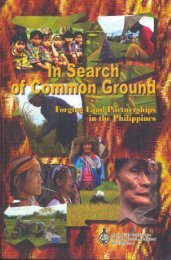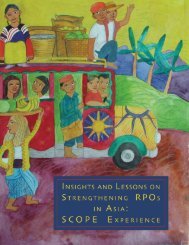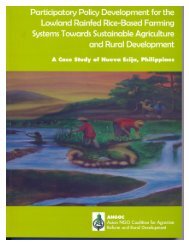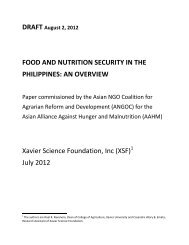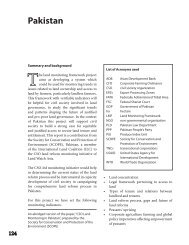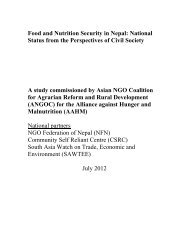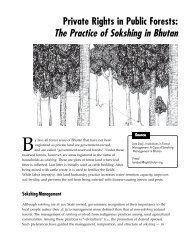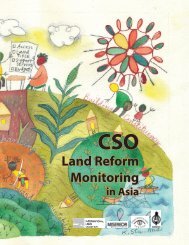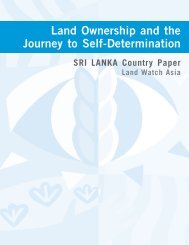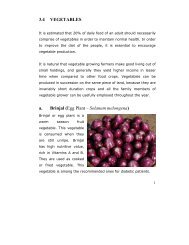Traditional Practices in Agriculture FULL - ANGOC Site
Traditional Practices in Agriculture FULL - ANGOC Site
Traditional Practices in Agriculture FULL - ANGOC Site
Create successful ePaper yourself
Turn your PDF publications into a flip-book with our unique Google optimized e-Paper software.
3.6 SUGARCANE<br />
Sugarcane is India’s<br />
traditional crop and<br />
is the chief source of<br />
sugar. It plays a<br />
pivotal role <strong>in</strong> the<br />
economy of the<br />
country as a cash<br />
crop. People say that<br />
jaggery is orig<strong>in</strong>ated<br />
<strong>in</strong> India. Accord<strong>in</strong>g to<br />
Ayurveda, Jaggery is anti-diabetic, high <strong>in</strong> Vitam<strong>in</strong>s, and m<strong>in</strong>erals<br />
like iron, copper, calcium, and phosphorous. This is can be used <strong>in</strong><br />
the preparation of sweets.<br />
At plant<strong>in</strong>g of sugarcane farm yard manure and tank silt are added<br />
<strong>in</strong> bulk to the field. Sugarcane is organically grown us<strong>in</strong>g high<br />
tonnage of compost and vermi-compost.<br />
Of late organic farmers have deduced an organic formulation<br />
termed as “Jeevamrutha”, which is prepared by mix<strong>in</strong>g 10 kg of<br />
cow dung, 10 litre of cow ur<strong>in</strong>e, 2 kg of jaggery and 1 kg of castor<br />
seeds which is all mixed <strong>in</strong> water and allowed to ferment for 8<br />
days. After fermentation this formulation is allowed to mix with<br />
irrigation water and fed to sugarcane crop.<br />
1




